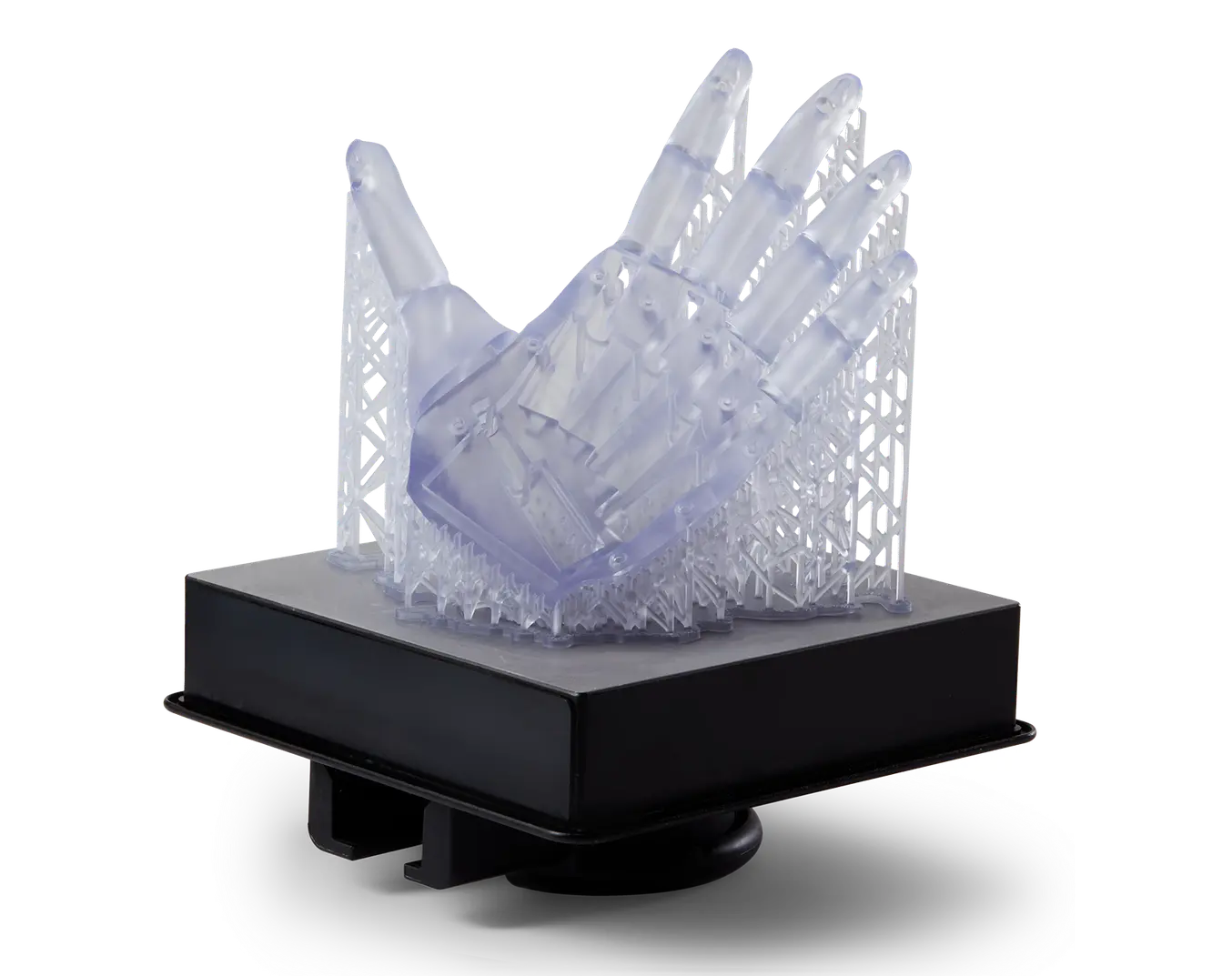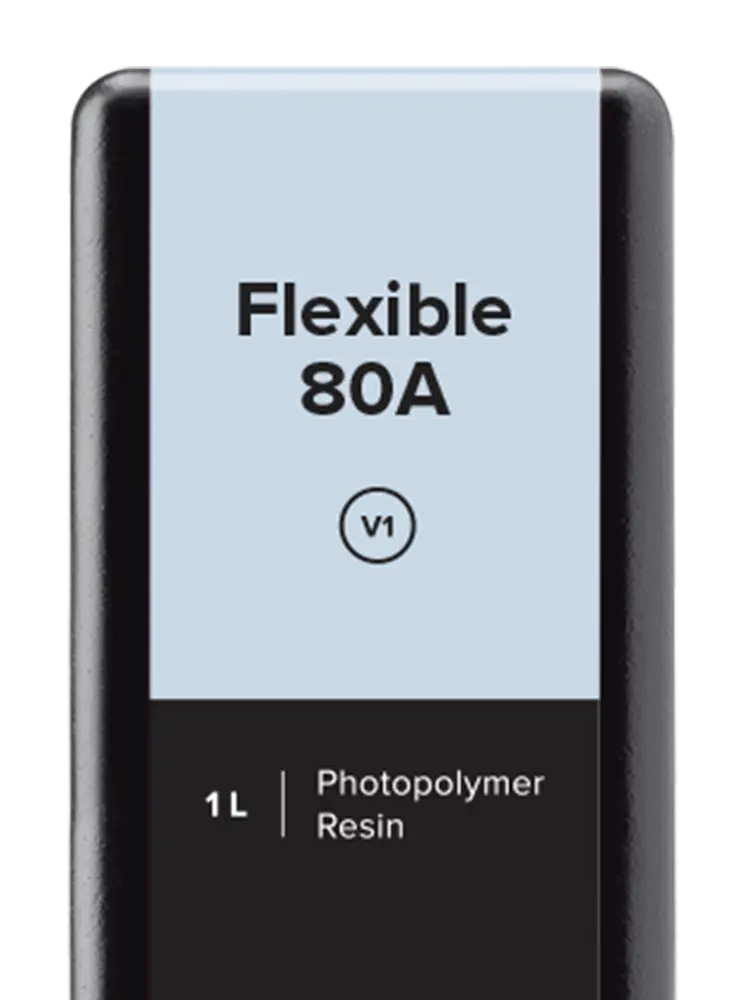Flexible 80A Resin
Engineering
SLA
Translucent
8.9 MPa
120 %
80 A
Select Printer Series and Resin Volume
| Bulk order quantity (L) | Discount % |
|---|---|
| 1 | 0% |
| 30 | 15% |
| 60 | 20% |
| 120 | 25% |
| 240 | 30% |
| 1,000 | 35% |
| 2,000 | 40% |
| 3,000 | 45% |
Parts printed in Flexible 80A Resin can withstand bending, flexing, and compression, even through repeated cycles.

Flexible 80A Resin has been added to your cart.

Why Choose Flexible 80A Resin?
Create silicone, urethane and rubber-like parts. Produce flexible parts in-house in a matter of hours, replacing outsourcing and molding.
Elastomeric
Leverage bendable parts that return to shape slowly.
Soft and Strong
Stretch and compress parts through repeated cycles without cracking.
Transparent
Create objects that are clear, providing visibility into the model.
Durable
Support user testing with looks and feels like prototypes that can be put to the test.
Applications
Flexible 80A Resin is ideal for hard, flexible prototypes and a great alternative to mold making.
Consider Flexible 80A Resin for:
Material Properties*
Flex 80A Resin
Ultimate Tensile Strength
Stress at 50% Elongation
Stress at 100% Elongation
Elongation at Break
Tear Strength
Hardness Shore A
* Material properties may vary based on part geometry, print orientation, print settings, and temperature. Data was obtained from parts printed on a Form 3 with 100 µm Flexible 80A settings, washed in a Form Wash for 10 minutes, and post-cured at 60°C for 10 minutes in a Form Cure.
Post-Processing
Washing
The foundational step in any SLA post-processing workflow is to remove any excess resin on the surface of the parts through an alcohol or ether wash.
Curing
Post-curing Engineering and Specialty Resins is essential for parts to achieve their full strength and functionality. This step completes the chemical reaction initiated during printing, transforming the part from its green state into a fully finished component.

